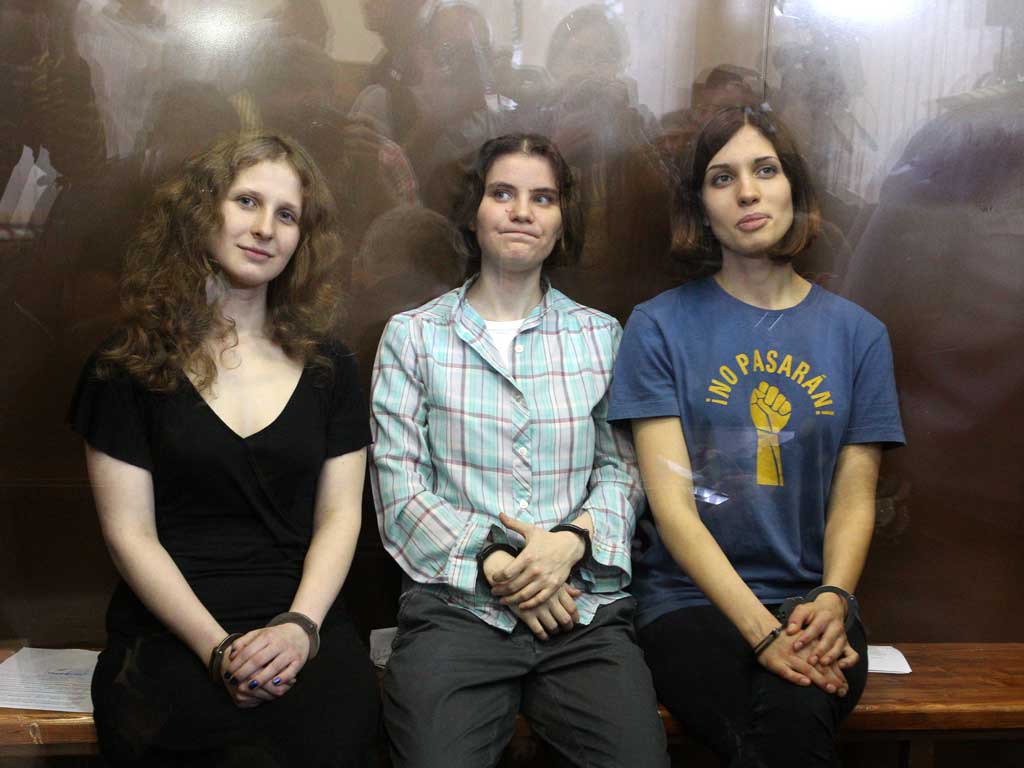Tanya Lokshina: The Pussy Riot trial is a turning point for how we view Russia
The present state of affairs is intolerable for a country that claims to respect human rights

Your support helps us to tell the story
From reproductive rights to climate change to Big Tech, The Independent is on the ground when the story is developing. Whether it's investigating the financials of Elon Musk's pro-Trump PAC or producing our latest documentary, 'The A Word', which shines a light on the American women fighting for reproductive rights, we know how important it is to parse out the facts from the messaging.
At such a critical moment in US history, we need reporters on the ground. Your donation allows us to keep sending journalists to speak to both sides of the story.
The Independent is trusted by Americans across the entire political spectrum. And unlike many other quality news outlets, we choose not to lock Americans out of our reporting and analysis with paywalls. We believe quality journalism should be available to everyone, paid for by those who can afford it.
Your support makes all the difference.As I write this piece, the three women who form the punk band Pussy Riot have been found guilty of "hooliganism" by a Moscow Court. They have each been sentenced to two years in prison. My colleague has somehow managed to get into the courtroom, and has been sending updates every few minutes. More than 1,000 people gathered outside the building in Moscow to hear the verdict and they're not leaving.
The verdict comes amid a broader crackdown on civil society after Putin's election to another presidential term. In June and July, Russia's parliament adopted a raft of laws putting new restrictions on certain NGOs that receive foreign funding, on public demonstrations, and on the internet.
After a winter of unprecedented, peaceful opposition protests, demonstrators whom the authorities claim were involved in a scuffle with police in May were arrested and charged with crimes that appear disproportionate to their alleged actions.
Twenty-two-year-old Nadezhda Tolokonnikova, Maria Alyokhina, 23, and Yekaterina Samutsevich, 30, who have already spent close to half-a-year in pre-trial custody after their now world famous anti-Putin stunt at Christ the Saviour Church in Moscow, are known all over the world as Pussy Riot. Indeed, they look like college students, as they smile at their supporters from the defendants' cage in the stuffy court room. Students exhausted by lack of sleep and physical strain as they face the punitive state machinery. Since 30 July, they've spent more than 10 hours a day in that cage, brought to court in the early morning, having invariably missed prison breakfast, and returned to their cells after midnight. They lost their case, but it seems they won more than that, as their trial has become a turning point for how Putin's Russia is being viewed.
In the 20 years that the Human Rights Watch office has been operating in Russia, we have never seen such an intense campaign around a particular case. The media outcry, the staggering level of public interest, the list of celebrities speaking up in support of the three women in Russia and the West have been truly unprecedented.
Throughout Mr Putin's time on the world political stage, Russian and international human rights groups have flagged the growing loss of independence of the judicial system and the dramatic curtailing of freedom of expression in the country. It seems the Pussy Riot case has helped crystalise these two issues for the international community.
Now is the time for Russia's international interlocutors to make it clear to the Moscow government that the present state of affairs is intolerable for a country that claims to respect its international human rights obligations. If three young women dared challenge the Kremlin, Western democratic states can certainly afford to do likewise.
Tanya Lokshina is deputy director of Human Rights Watch's Moscow office
comment Tanya Lokshina
Join our commenting forum
Join thought-provoking conversations, follow other Independent readers and see their replies
Comments